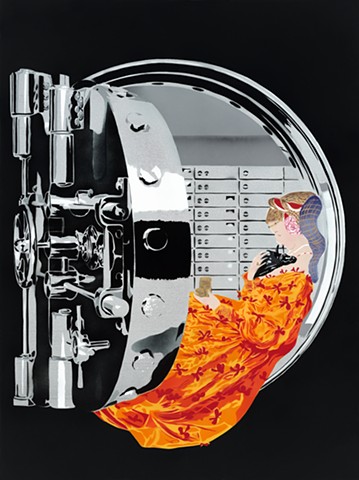Original artwork - Matters of Conscience series
A revolving door blurs the lines between one of the nation’s most important regulatory agencies and the interests it regulates. Former employees of the Securities and Exchange Commission (SEC) routinely support corporations’ attempts to influence SEC rulemaking, counter the agency’s investigations of suspected wrongdoing, soften the blow of SEC enforcement actions, block shareholder proposals, and win exemptions from federal law. This movement of people to and from the financial industry has the potential to influence the SEC’s culture and values. This is disconcerting as the SEC has the power to affect investors, financial markets, and the economy. Given the recent destruction of billions of dollars of lower and middle class wealth, this revolving door activity is particularly disturbing. Perhaps even more so, however, is the fact that the SEC is but a microcosm of the federal government, where widespread revolving-door activity expands the opportunities for private interests to sway public policy. The central figure in this painting was appropriated from Eleanor Fortescu Brickdale’s 1901 artwork entitled The Deceitfulness of Riches, a title apropos of the uncomfortable influence the financial industry has over the actions of its regulatory agency. In Brickdale’s painting, however, the figure is coddling a kitten. To represent the all too cozy SEC-Wall Street relationship the kitten was replaced with a nuzzling version of the Charging Bull sculpture, an icon of Wall Street located on the grounds of Bowling Green Park in New York City’s Financial District.
